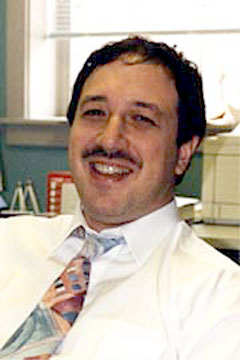|
Release date: March 19, 2003 Emory Psychologist Tests Mental Health Treatments
"The book is devoted to distinguishing science from pseudoscience in clinical psychology to allow clinicians, consumers and scientists to determine what practices are —and are not—scientifically supported. The goal is to essentially sort out the wheat from the chaff and ultimately help maintain the integrity of mental health practice," says Lilienfeld, lead editor of "Science and Pseudoscience in Clinical Psychology" (Guilford Publications, 2003). Lilienfeld says he hopes to raise the bar for the level of scientific debate on controversial mental health practices, and narrow the gap between mental health science and actual practice. "Many popular techniques that are used today are not supported by scientific data, which means patients may not be getting the help they need, and in some cases are being harmed," he says. In the book, leading clinical researchers review widely used therapies for alcoholism, infantile autism and attention deficit/hyperactivity disorder, treatments of post-traumatic stress disorder, herbal remedies for depression and anxiety, and self-help books. Other topics covered include issues surrounding psychological expert testimony, the uses and abuses of psychological assessment tools—such as the Rorschach inkblot test— and unanswered questions about dissociative identity, also known as multiple personality disorder. Lilienfeld also is an editor of the recently released "What's Wrong With The Rorschach: Science Confronts the Controversial Inkblot Test" (Jossey-Bass, 2003), a critique he says that challenges the continued use of the subjective yet widely used psychological test. Lilienfeld, founder and editor of the academic journal "The Scientific Review of Mental Health Practice," previously has published papers critically evaluating the validity of Rorschach inkblot tests. ###
|
|
||||||||||||
copyright 2001
For more information contact:

